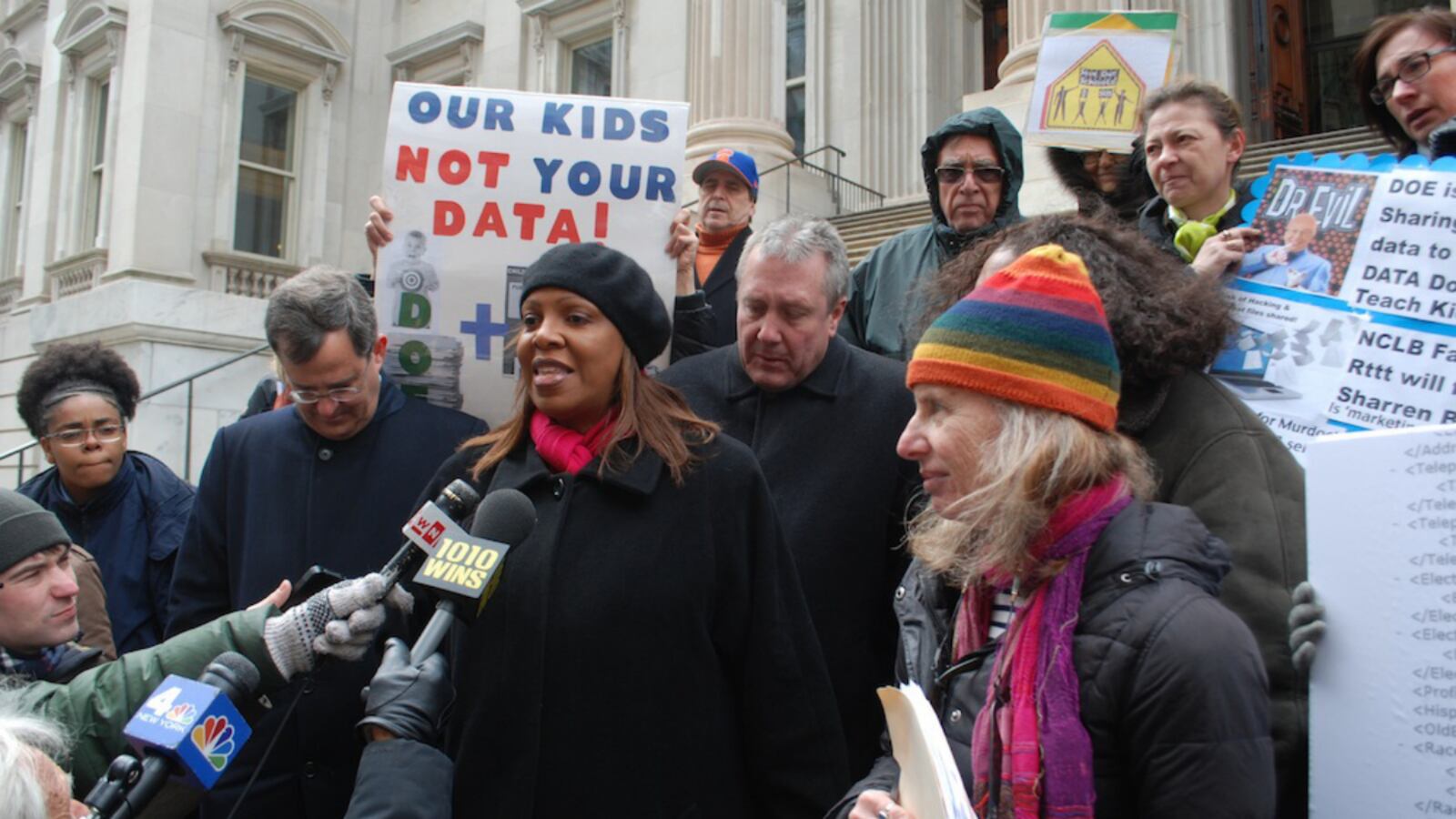They are called on to help craft each school’s new cell phone policy, develop school-improvement plans, and weigh in on the hiring of new principals.
School leadership teams, which are composed jointly of parents and staffers, play a state-mandated role in school decision-making. Yet the city has argued in court that their meetings need not be open to non-members, including parents, community leaders, or others.
Now, the city’s public advocate and a parent advocacy group are joining a lawsuit meant to guarantee those meetings are accessible to anyone, arguing that the teams decide on critical school issues and are subject to the state’s open-meetings laws.
“It’s really bad in terms of public policy to close these meetings,” said Leonie Haimson, executive director of Class Size Matters, who helped a parent file a complaint in 2007 when former Chancellor Joel Klein tried to limit the leadership teams’ role. She is intervening in the current lawsuit with Public Advocate Letitia James.
“These should be open to the public and there should be transparency,” Haimson said.
Every city school is required to have a leadership team, which must include the principal, parent association president, and teachers union representative, along with an equal number of elected parent and staff members. Each team’s biggest task is to produce the annual roadmap that charts the school’s goals and plans for the year, which must be reflected in the school budget. The teams also must be consulted when new school leaders are hired and when certain policies are drawn up, such as the new cell phone rules.
Most schools allow members of the public to sit in on their leadership meetings. (In fact, a 2011 city presentation for new team members said the meetings are “open to the public” and that teams “may find that observers from within the school community or beyond wish to attend.”) Still, some school teams have written bylaws restricting access to the meetings.
In 2013, teacher Francesco Portelos sued the city after he was blocked from attending the leadership team meeting at his Staten Island school, I.S. 49. The court agreed with the city’s argument that the teams play a strictly advisory role and so are not covered by the state’s open-meetings rules, which say that meetings of “public bodies” must be accessible to the general public.
Michael Thomas, a retired Manhattan teacher, decided to challenge that ruling by showing up at an I.S. 49 leadership team meeting on April 1, 2014, according to court documents. Principal Linda Hill, who did not respond to an email seeking comment, barred Thomas from the meeting because the team’s bylaws only permit members of the “school community” to attend the meetings, the documents show. In May, Thomas filed suit against the city.
Last month, the public advocate wrote to schools Chancellor Carmen Fariña asking the city to reverse its position on the meetings. Otherwise, James said, she would be forced to join Thomas’ lawsuit.
In her letter, which Haimson and several parent leaders co-signed, James argued that the leadership teams play a key function in school planning and so qualify as “public bodies.” She pointed out that the city’s own regulations say the team meetings must be publicized “in a form consistent with the open meetings law.”
She also refuted another city argument – that the teams discuss sensitive information, such as school safety records or the job records of principal candidates – by noting that the open-meetings law permits private sessions. Overall, she said the teams are a “critical part” of school governance.
“Closing their meetings to the public would have a profoundly damaging impact on the transparency of the governance and operation of our schools,” the Dec. 16 letter said.
A city lawyer wrote back rejecting those arguments. “The SLT does not conduct public business and, as a result, is not a public body subject to the Open Meetings Law,” wrote Courtenaye Jackson-Chase, the city education department’s chief lawyer.
A department spokesman said all agency policies comply with the law, and that the city does not comment on the specifics of pending legislation.
A state Supreme Court judge is set to hear the case next Wednesday. Pro bono attorney Laura Barbieri of Advocates for Justice will represent the public advocate’s office, while Barbieri and pro bono attorney Mark Ladov of New York Lawyers for the Public Interest will represent Class Size Matters.

